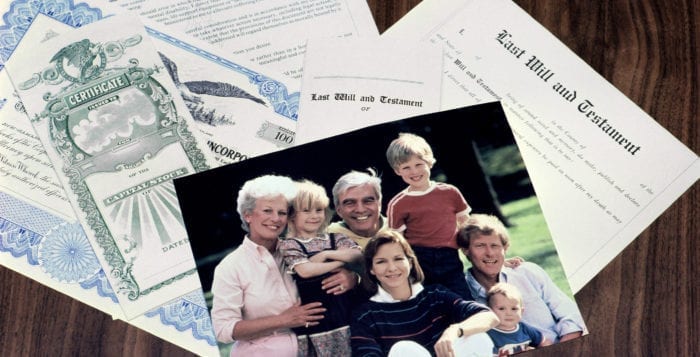By Nancy Burner, ESQ.

Planning for the future can sometimes be difficult. Creating an estate plan can give you the peace of mind you need, while also making it easier for your loved ones to handle your affairs when you die. We often find that while our clients understand the basics of certain estate planning documents, they are often surprised to see that many of these documents are multifaceted and serve multiple purposes.
A last will and testament is a legal document memorializing your wishes on how you, the testator or creator of the will, want your estate to be distributed after you die. If you die without a will, your assets will be distributed according to state statute, also known as the laws of intestacy.
For example, in New York State, if you die with a surviving spouse and children, your spouse will receive the first $50,000 of your estate and then one-half of the balance. The remainder will be distributed equally among your children. This is not ideal for someone who wants all their assets to go to their surviving spouse.
Instead of being bound by the laws of intestacy, one can create a will that specifies to whom they want their assets to go and how they want their assets to be distributed. Under the scenario above, a will would allow the testator to distribute their assets to their surviving spouse. Only if the spouse predeceases the testator should the assets be distributed to their children.
The will has functions other than just listing the distribution of assets upon death. For parents with young children, a will allows a guardian to be named for minor children. Also, if there are beneficiaries that are minors or incapacitated, the will can provide that the assets be distributed in trusts on behalf of those beneficiaries.
Many clients will choose to leave assets to beneficiaries in trusts in other circumstances, such as for creditor protection or to delay the age by which they can have full access to the funds.
A will can also create a supplemental needs trust for beneficiaries who currently receive, or may be in need of, means-tested government benefits.
Another advantage of executing a will is that it allows the creator to waive any bond that the executor would otherwise have to pay in order to administer the estate. A bond is often required by the court to protect the interests of the distributees and beneficiaries of one’s estate.
Depending on the size of the estate, the bond may have a large annual premium that will be paid out of the assets of the estate. A will can also provide for the decedent’s wishes regarding funeral arrangements and cremation.
It is important to have a will even for individuals who hold all accounts jointly with another person. While the joint assets will go directly to the co-owner, the terms of the will can be used to administer any assets that are held outside of the joint accounts. An estate account will have to be opened to cash any checks delivered after death that are made payable to the decedent, including tax refunds or a return of other funds. Having a will ensures that these funds are distributed to the appropriate persons.
Creating a last will and testament can help avoid many of the pitfalls that occur when a person dies without any estate plan in place. We strongly recommend seeking a trust and estates and elder law professional to help determine the right estate plan for you.
Nancy Burner, Esq. practices elder law and estate planning from her East Setauket office.











